Free School, No Plastic: How Hyd Citizens Turned Barren Land Into a Model Colony
In the early 90's, a few citizens came together to build a green model area for Hyderabad. What happened next will restore your faith in the power of citizen-driven movements
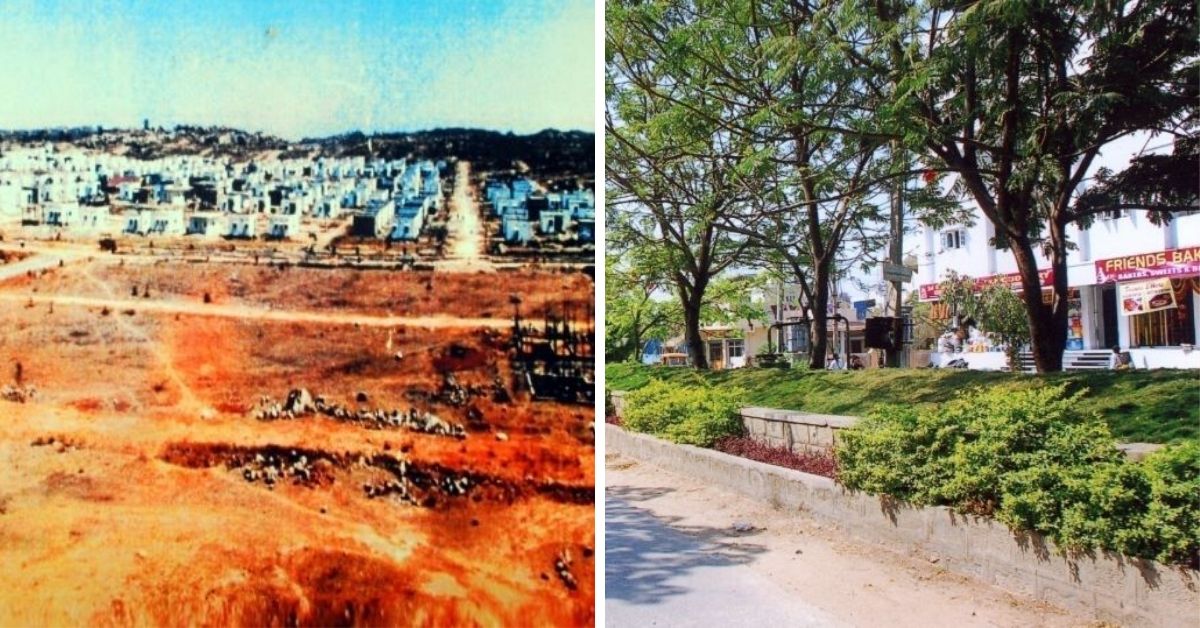
While the nooks and crannies of India are seeing a sudden wave of environmental concern, the residents of Hyderabad’s Pragathi Nagar started early and have been living in harmony with nature for the last 25-odd years.
To begin with, when you enter the colony, you will come across several boards and posters mentioning certain Do’s and Don’ts.
This water-saving device can easily be retrofitted onto most standard taps, to save up to 80% of the water that would have been used up by a regular tap!
The area which falls under the Nizampet Municipality strictly prohibits visitors from bringing single-use plastic items, littering and even fidgeting with the plants, with hefty fines for those who flout the rules. Upon uprooting any trees, one has to pay a fine up to Rs 500. Likewise, penalties are imposed on any activities that pollute the environment.
A significant factor behind the unique green and clean colony is the citizen-led drive that was started in the early 90’s, when the colony was a barren land with no green reserves and very few settlements.
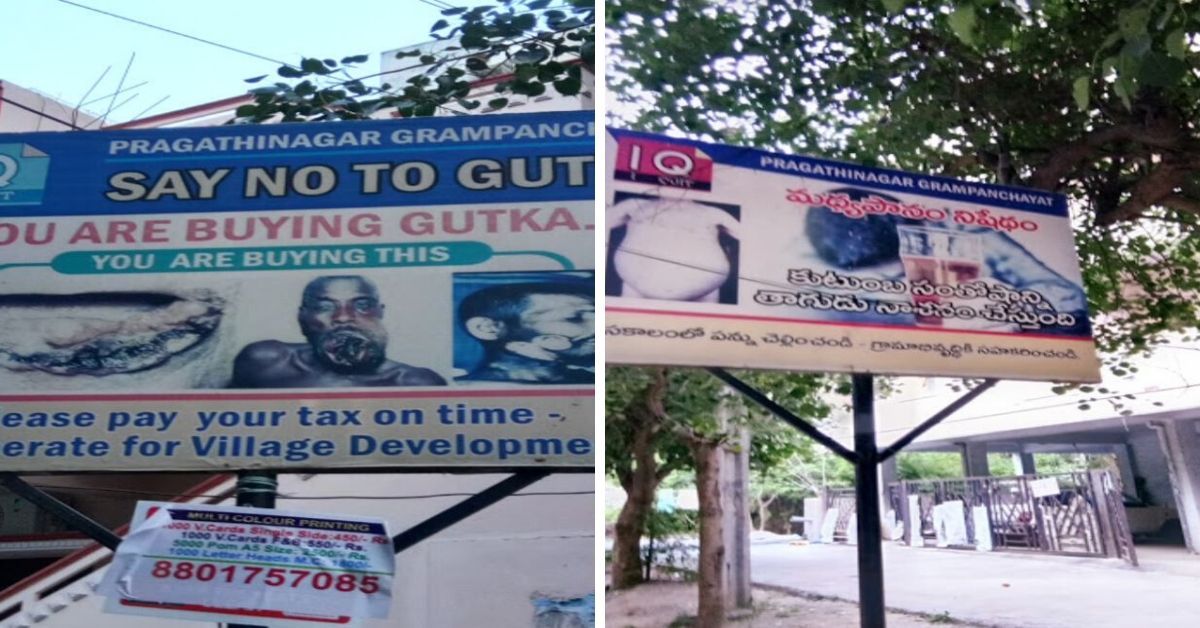
How It All Started
It all started with a few employees of Hyderabad Allwyn Limited (the company ceased its operations in 1999) stepping forward to transform the empty land into a housing society colony.
One of the employees, Dayakar Reddy, led the movement and formed a committee ‘Allywin Welfare Trust’. The trust purchased around 80 acres of land for nearly 700 families. Each family paid around Rs 20,000 for the land and construction expenses.
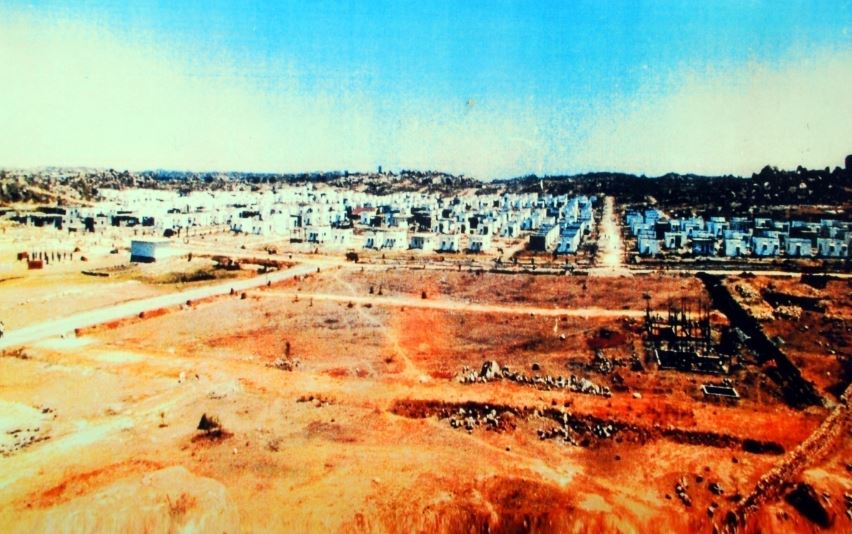
“All the committee members unanimously prioritised health and environment. We wanted to develop a housing society where every resident, including the shopkeepers, has a role to play. It was a daring move, but we were clear about our goals. Of course, the local panchayat gave us their full support; otherwise, it wouldn’t have been possible. Today, I feel very proud of what the colony has become,” Reddy tells The Better India.
Here are three factors which define the one-of-its-kind colony.
1) Green Houses
Instead of hiring construction workers, the supervisors and workers of the company decided to construct the homes themselves. This way, they saved Rs 50 lakh, which was equally distributed among the residents.
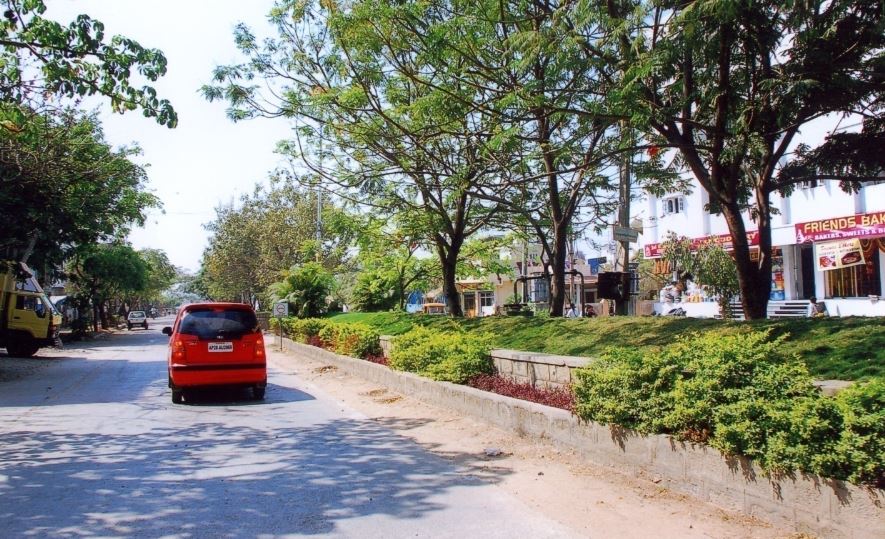
For building roads, they used a government scheme called ‘Janmabhoomi’ under which the state bore 70 per cent of the cost. Additionally, they spent Rs 6,000 for each house to get a water connection and electricity from the government.
To give an eco-friendly touch, the trust imported teak logs from the North-Eastern states to build doors and windows.
Post-possession, every family was directed to plant a minimum of two trees outside their houses. As a result, the area boasts of around 15,000 full-grown trees currently.
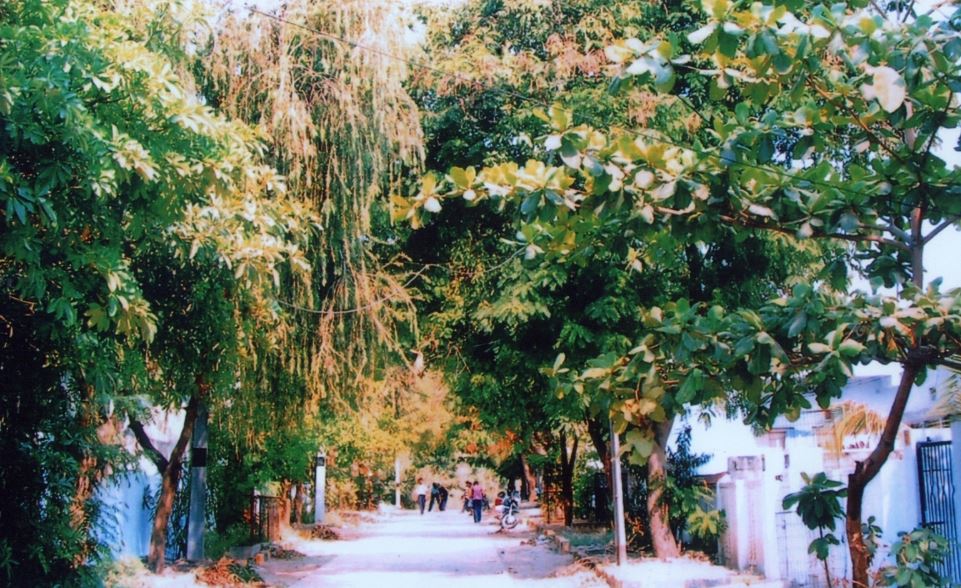
Sewage management was taken care of with the installation of a treatment plant with a capacity of 25 lakh litres. The treated sewage is used to water the trees in the colony.
A common rainwater harvesting structure at a low lying area was installed for recharging all the borewells in the area. Today, the structure fulfils the colony’s water needs for up to 7-8 months.
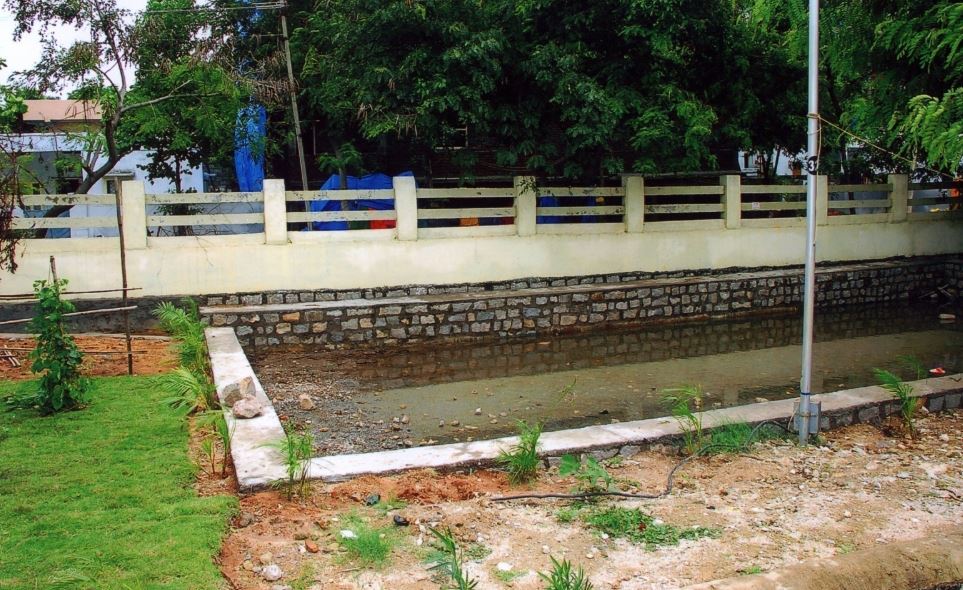
Finally, the segregation of dry and wet waste was also made mandatory in every house.
2) Free School, Free Hostel
Another notable citizen-led move is in the field of education. The colony has a hostel-school named People’s Nest which was founded in 2012 by by the People’s Progress Trust (a trust formed after the dissolution of the Allwyn trust). The school provides free schooling, food and accommodation to the children from marginal backgrounds and takes their of their needs from Class 6 until graduation.
Every year, PPT holds entrance tests for orphans and children in all rural areas of Telangana and Andhra Pradesh. The deserving ones are selected on merit. A total of 625 students are currently part of the hostel.
Describing a typical day at People’s Nest, Nagaraj S, a student of Class 9, says:
“I begin my day at 4.30 AM with jogging and physical exercise. Then, I prepare and eat breakfast, serve the hostellers and attend classes from 8.30 AM-5.30 PM. Following this, I relax, and as soon as the clock hits 7, I return to the kitchen and cut vegetables for dinner. My day ends after I have cleaned the kitchen.”
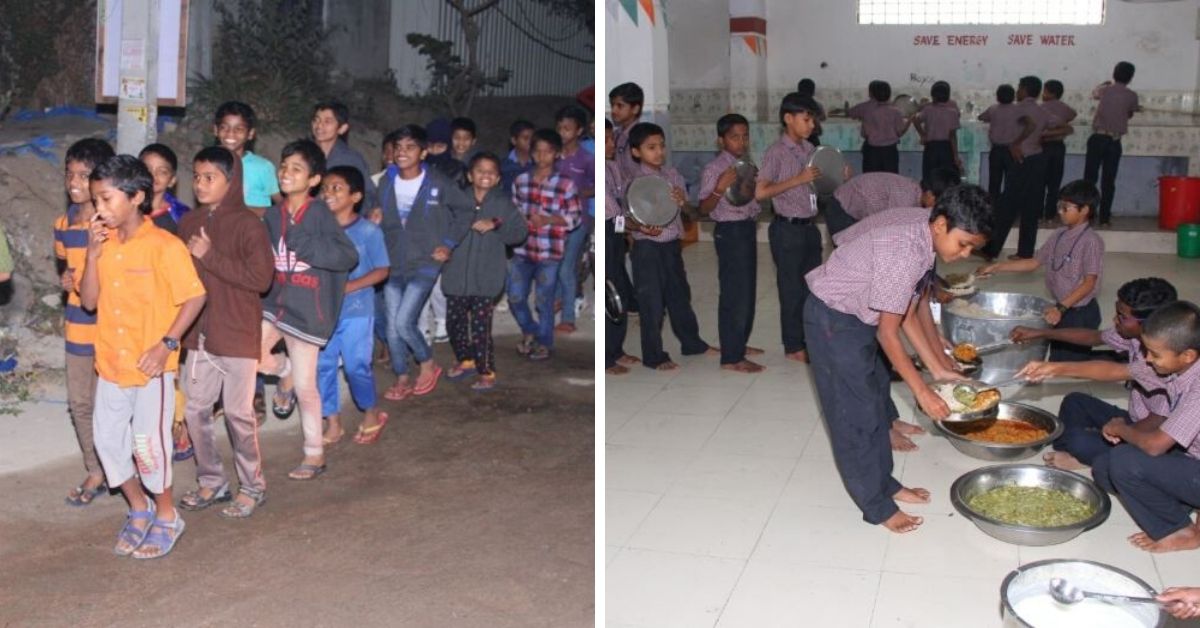
Nagaraj and almost 300 students from higher classes follow this routine for five days every month in rotation. The remaining 300 from lower classes (5 and 6) only have to wash their plates and keep their respective beds clean.
Many of the hostel students have successfully managed to get admission into prestigious institutions and clear tough exams.
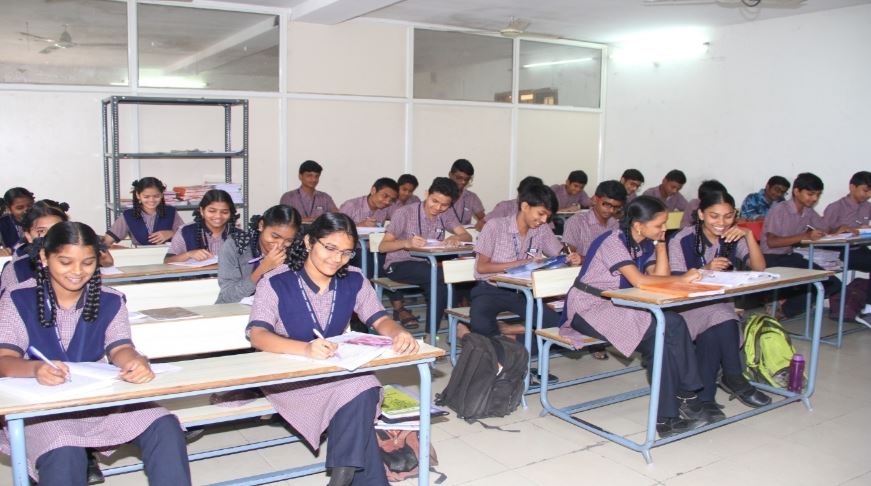
“All the students here are very passionate about studies. Because they understand its importance, they are enthusiastic about doing their chores as well. There is a certain level of patience, understanding, independence and reliability I see in every child that becomes a part of us,” says Surya Prakash, one of the core trust members, to TBI.
3) Community Wellbeing
Even before the families moved in, the Allwyn Trust listed out unhealthy products that would not be sold inside. These included tobacco, alcohol, cigarettes, gutka and plastic bags under 50 microns. The residents are not allowed to smoke in public areas.
Meanwhile, beggars in the area were given alternative livelihood as domestic help, drivers, cleaners, and so on.
To encourage people to live well-rounded lives, the People’s Progress Trust (PPT) opened an indoor swimming pool, outdoor courts (cricket, basketball & lawn tennis), a gymnasium and a community hall.
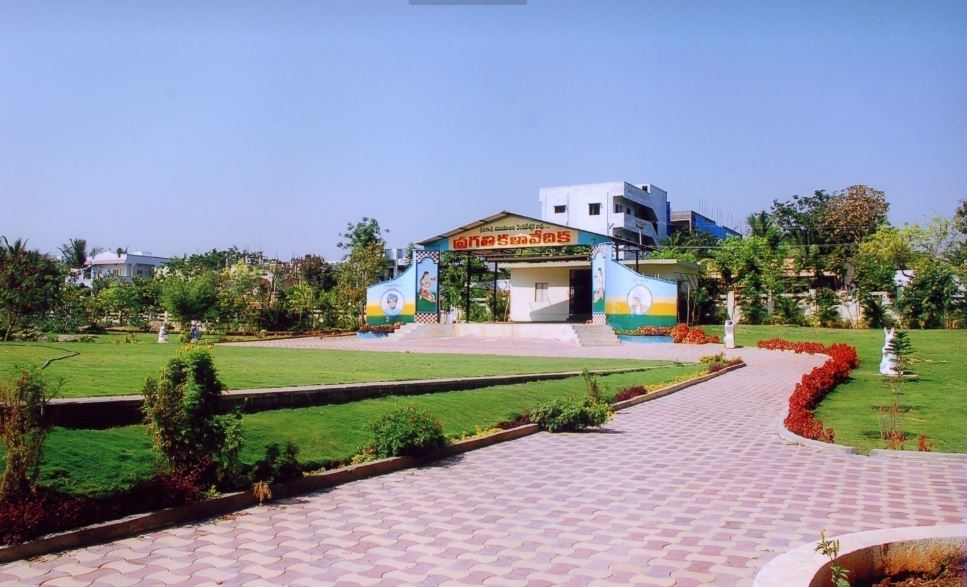
All the amenities are chargeable, and apart of the fees collected goes to the PPT every month. PPT uses the money to maintain the 100-bed Multi Speciality Hospital where the needy are diagnosed for free, and medicines are provided at subsidised rates.
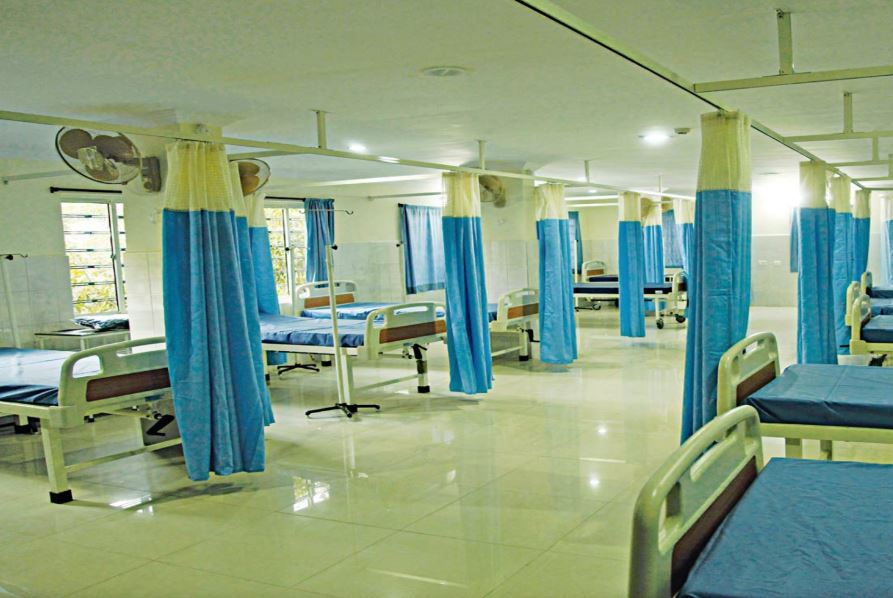
Pragathi Nagar is probably the only colony in India to get both certifications, ISO 9000 for quality management and ISO 14,000 for environmental management as per Reddy.
‘Be the change you wish to see in the world’, is one of the most memorable sayings of Mahatma Gandhi that is and will be relevant forever. The residents of Pragathi Nagar have ensured that in religiously following and implementing this principle, nothing—not even building a society from scratch—is impossible.
Also Read: With Minimal Funds, 28-YO’s Initiative Clears 15,000 Kgs of Garbage From Hyderabad
Like this story? Or have something to share?
Write to us: [email protected]
Connect with us on Facebook and Twitter.
If you found our stories insightful, informative, or even just enjoyable, we invite you to consider making a voluntary payment to support the work we do at The Better India. Your contribution helps us continue producing quality content that educates, inspires, and drives positive change.
Choose one of the payment options below for your contribution-
By paying for the stories you value, you directly contribute to sustaining our efforts focused on making a difference in the world. Together, let’s ensure that impactful stories continue to be told and shared, enriching lives and communities alike.
Thank you for your support. Here are some frequently asked questions you might find helpful to know why you are contributing?


This story made me
-
97
-
121
-
89
-
167











